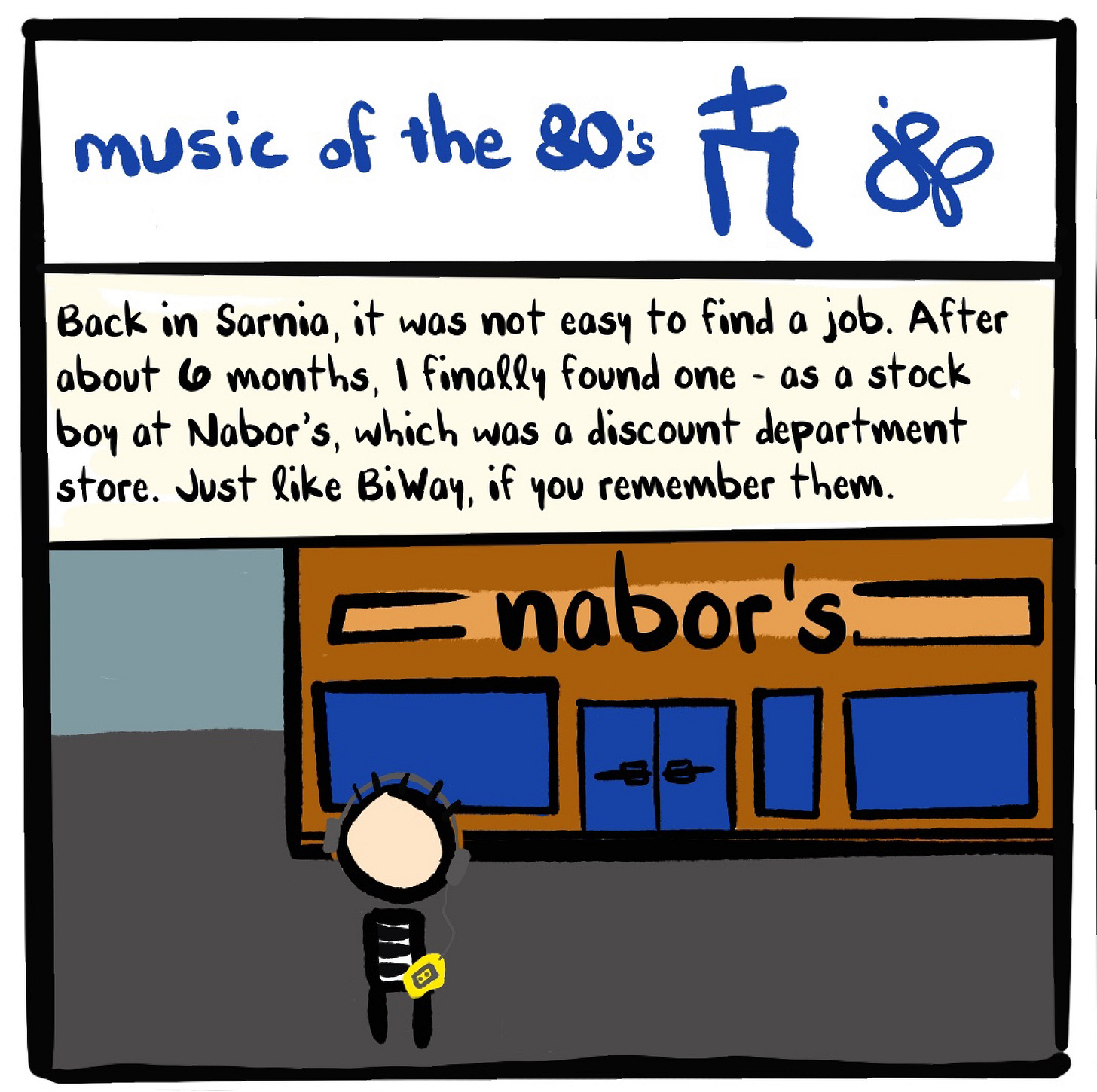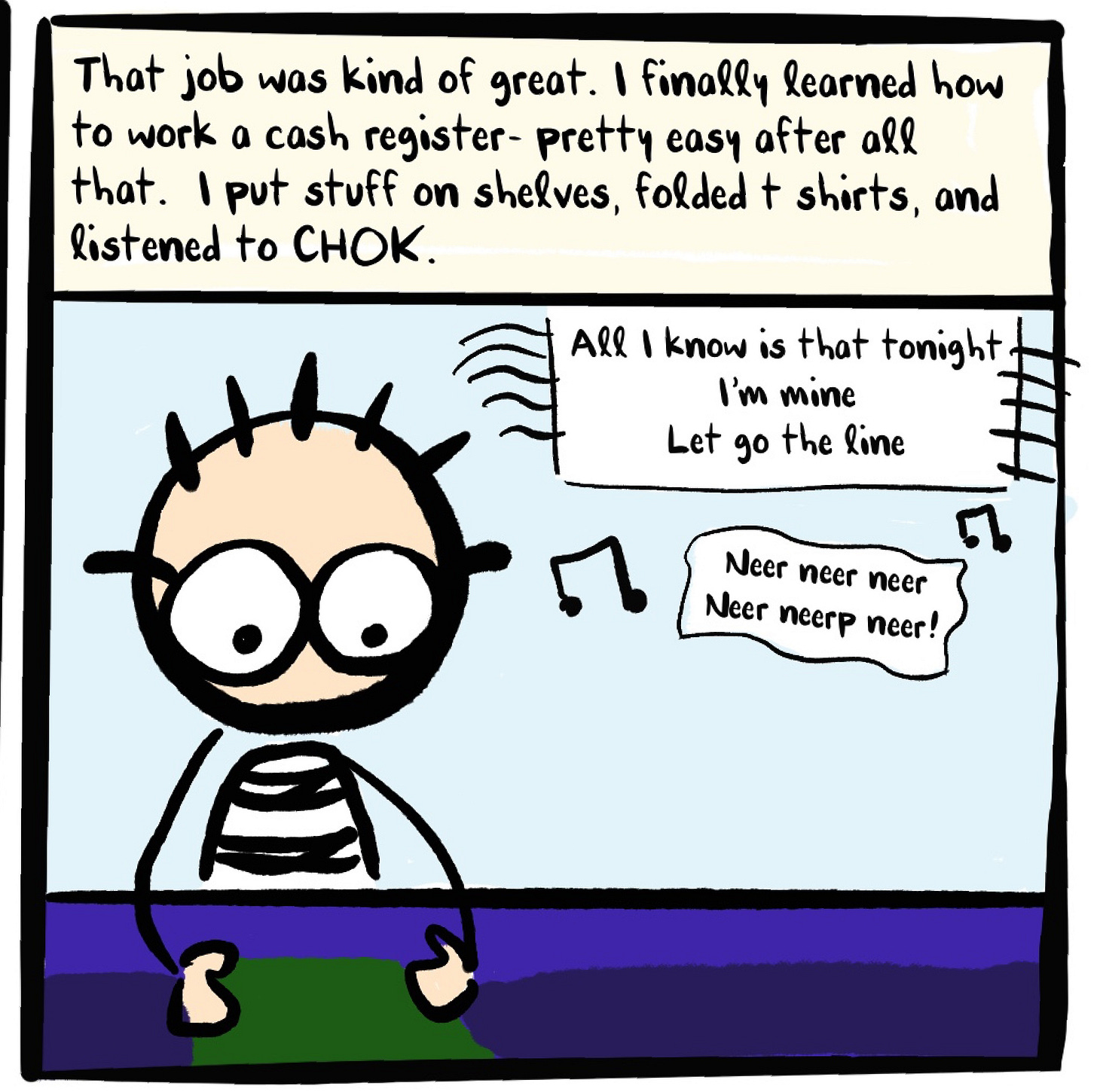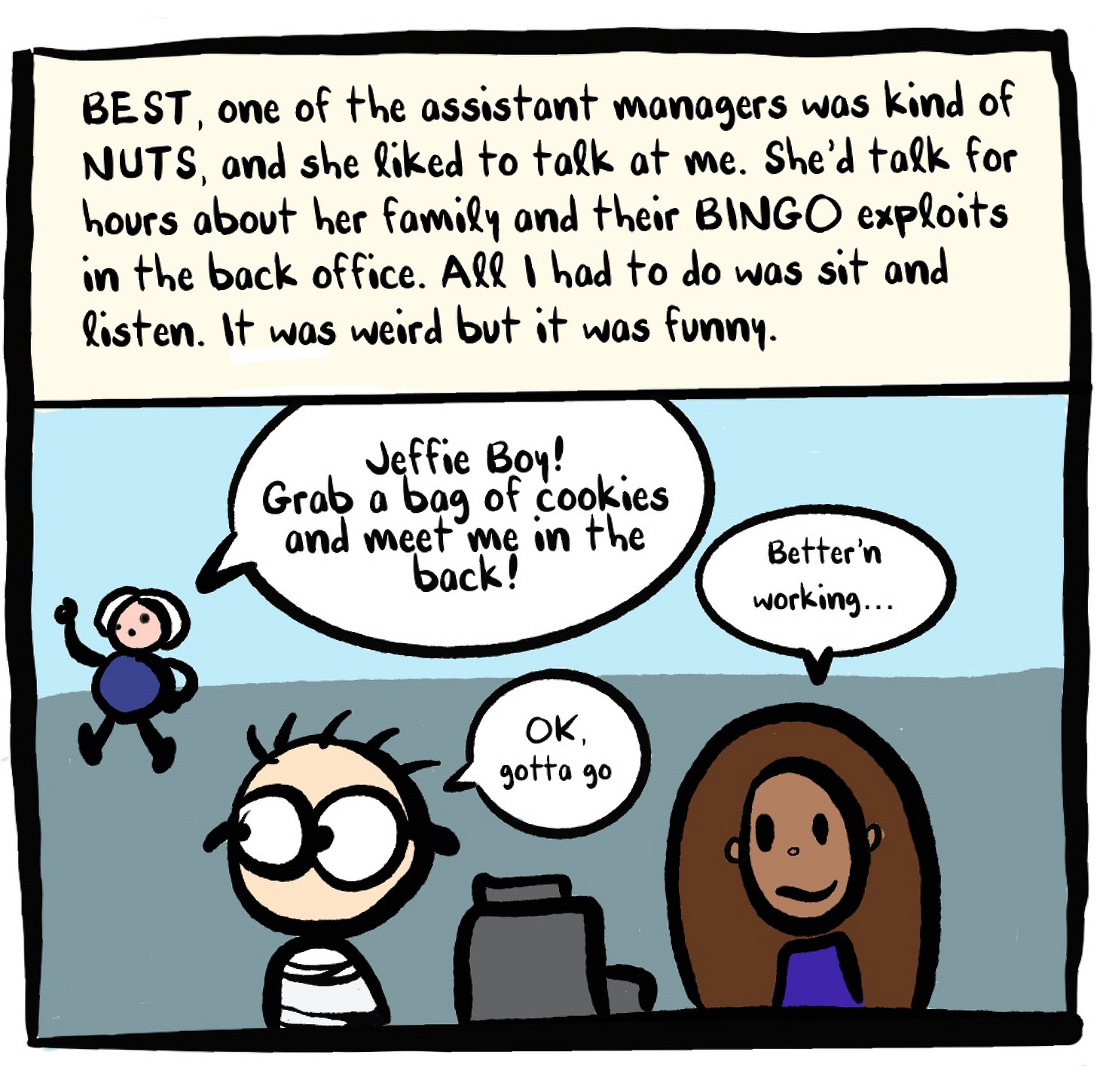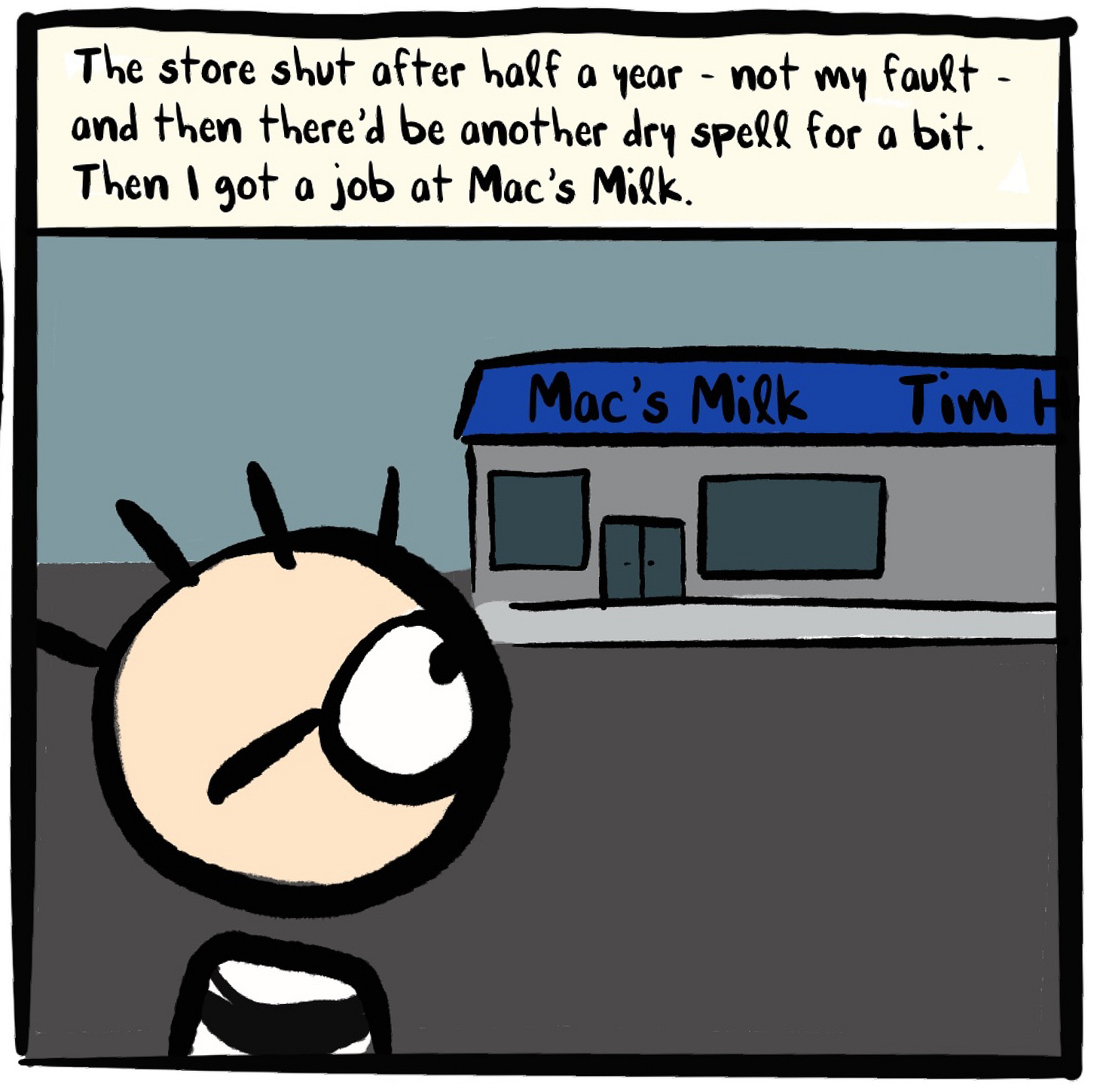Welcome to the several recent signups to this newsletter! I hope you enjoy whatever this is. If you’re new or confused or anything: this is a newsletter/comic strip about the 1980s, specifically my life during it (ages 10-19), and the music that happened then. It wanders a lot: sometimes it is also about a spaceship/submarine driven by three avatars for myself – a mouse and a ball and a robot – who sit in the WKRP DJ booth. Sometimes they take listener calls; other times, they just wander around being moody. I don’t plan much.
The first year of this newsletter was weekly – that has shifted to every two weeks since January as I’ve added other writing projects to my roster.
Currently, the focus of the strip is Jobs I Have Had. This will likely (soon) pull us into the 1990s! I’m not sure what’ll happen with that. I don’t want to change the strip’s name, and I have not touched upon plenty of 80s bands I want to include. What will happen? Ahhh!
Okay, Move On
I am 17 years old in today’s strip, back in Sarnia, living with my dad, post-his-divorce, getting a job at Nabor’s, which was a low-end department store akin to the old BiWay. I thought I’d have a ton to share about it, but it only wound up needing three panels.
Radio, Radio
I have only one musical memory from Nabor’s: they always played CHOK in the store, which was one of the two local FM stations. CHOK played easy, familiar music, and since this was before the days of New Country and Smooth Jazz, it was Pop, minus anything very challenging.
As an aside, just after I’d moved to Toronto, my brother landed a job as a DJ at CHOK, which I loved. When I’d drive back to visit with a friend, we’d savour the moment when we could start to pick up CHOK on the radio and, if we were lucky, hear Jim telling people how to get tickets for a big turkey giveaway while introducing John Cougar Mellencamp.
Here’s the tiny little story, though: one day while refolding T-shirts, I heard a song by Bruce Cockburn and was smitten. However, the DJ didn’t announce the title (or I didn’t hear it), and so when I went to buy the song, I had to sort of hope that Cockburn’s latest single was the song I’d heard. It was not. I had heard “Tokyo” for the first time on the radio; I bought the boring “new track” from his hits record, called “Waiting for a Miracle.” I still possess that 45, and I still quietly resent it. Such drama!
When I was learning about music, Bruce Cockburn was always around (he’s still around) in Canada. He was a guitarist and singer/songwriter who’d started off folkie but moved towards a more electric rock sound. To be honest, I haven’t paid much attention the last 30 years, so I won’t pretend to know a ton. I just learned he’s released 34 records. But in the era I paid attention to, from the late 70s to the late 80s, he took complicated situations and distilled them so that his listeners could learn. He sang about Guatemalan refugees, the International Monetary Fund, and government covert activities, and then I had to go learn what those all were. He’s the first person who told me Canada was on stolen land. Only Billy Bragg gave me as much (useful) homework.
He also sang so sweetly about Toronto – “Coldest Night of the Year” and “You Pay Your Money and You Take Your Chance” were basically what my anticipations of the city were based on before I arrived. He’s a great lyricist, weaving short stories out of sweet images
Woman cry, chase man down street, crying
No, Chuckie, no, please don't
Another girl comes, they run along St. Andrew,
Turn south on KensingtonMeanwhile, Chuckie beats it down the alley by the chicken packer’s
By the time I reach the corner, they’ve all vanished -
Just a deaf kid talking like Popeye
To a large fleshy laughing man in a blue shirt–“You Pay Your Money and You Take Your Chance” (1981)
Like a few of his contemporaries – Paul Simon, Peter Gabriel, and David Byrne come to mind – he was interested in and incorporated musical traditions from other countries. It wasn’t seen as colonial appropriation back then; it was contrarily kind of adventurous and brave, and educated us about more musical options than the radio or school would. It’s seen differently now, and I get it. But I think you can subsume that issue under this: music is inherently about sharing. Sadly, the music industry is about selling, and way too often, stealing. This will always be a tension.
I’ve mentioned Bruce Cockburn here before – when Marjan located the late-80s clean studio style of production in Suzanne Vega’s Solitude Standing as also being the Cockburn sound.
Darlings, that is it for now. Thanks for reading. If you dig it, please share it.
love
jep






